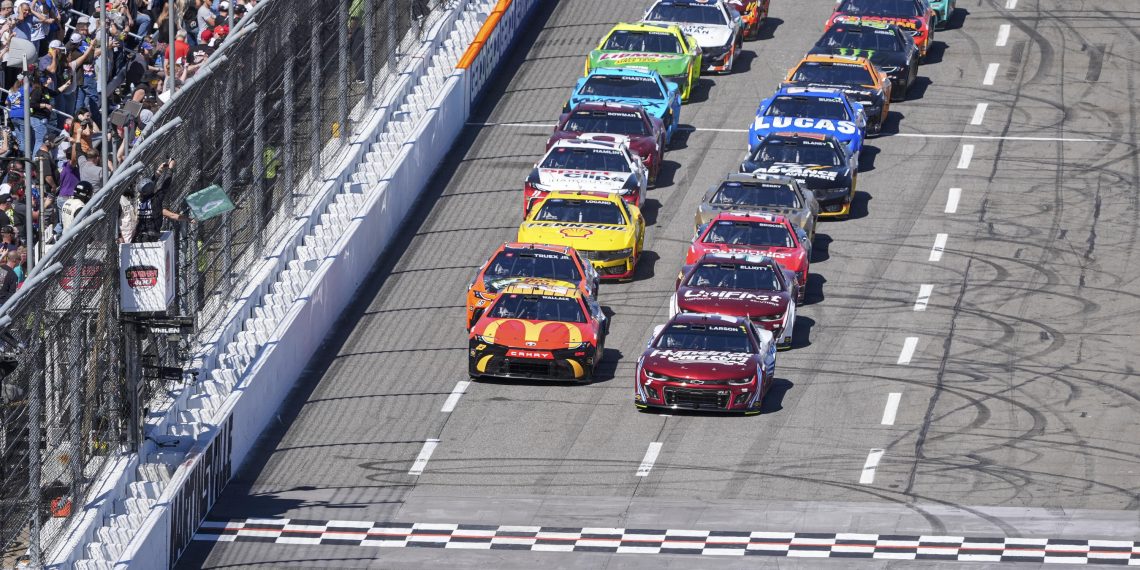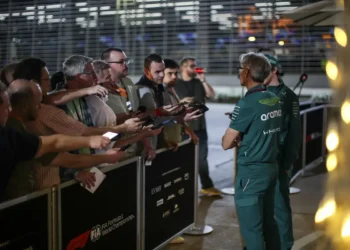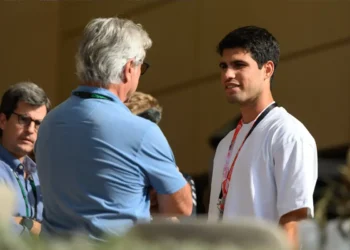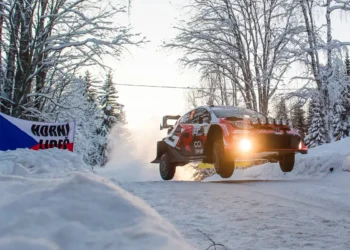In a stunning legal development, NASCAR’s motion to dismiss the high-profile antitrust lawsuit filed by 23XI Racing and Front Row Motorsports has been denied, keeping alive accusations that the motorsports giant and the France family have engaged in anti-competitive practices. U.S. District Judge Kenneth Bell handed down the decision on Friday, signaling a significant step forward in what could become a landmark case for the sport.
Judge Bell’s Ruling
Judge Bell, who heard oral arguments earlier this week, stated that the teams had presented “plausible antitrust claims” and emphasized that the case could not be dismissed without further examination of the facts.
“What is the actual evidence and how does it inform a correct legal conclusion?” Bell wrote in his ruling. “These questions cannot be determined on motions to dismiss this action… Instead, the answers must be found when the parties have a full opportunity to pursue discovery of the relevant facts and then at trial.”
This decision not only keeps the lawsuit alive but ensures that NASCAR will face a deeper level of scrutiny as both sides prepare for trial.
The Core of the Lawsuit
The lawsuit, filed jointly by 23XI Racing (co-owned by NBA legend Michael Jordan and NASCAR star Denny Hamlin) and Front Row Motorsports, accuses NASCAR of using anti-competitive practices to maintain dominance in stock car racing. The plaintiffs claim that the France family, which controls NASCAR, has engaged in monopolistic actions that stifle competition and limit opportunities for other teams.
Key Dates and Legal Ramifications
- Lawsuit Filed: October 2, 2024
- Trial Date Set: December 1, 2025
The trial could expose internal business practices and reshape how NASCAR operates if the court finds merit in the allegations.
NASCAR’s Motion for Bond Denied
NASCAR had also requested a bond to ensure that 23XI Racing and Front Row Motorsports would reimburse prize money if the court ultimately sided with NASCAR. Judge Bell rejected this motion, citing insufficient quantification of potential harm.
“The alleged harm to NASCAR of allowing Plaintiffs to race chartered cars on the same terms as the other 30 chartered teams is presently both uncertain and unquantified,” Bell noted.
However, NASCAR has not been ruled out from pursuing reimbursement at a later stage.
What’s Next?
With the motion to dismiss denied, both sides now enter the discovery phase, where evidence and internal documents will be scrutinized. The lawsuit’s outcome could have profound implications for the sport, potentially altering how NASCAR structures its charter system and interacts with teams.
What’s at Stake?
This legal battle threatens to shake the foundation of NASCAR’s business model. If the plaintiffs succeed, it could:
- Redefine NASCAR’s Charter System: Allegations of anti-competitive practices could lead to structural changes in how NASCAR allocates and manages charters.
- Increase Competition: The case could pave the way for smaller teams to challenge NASCAR’s existing practices, leveling the playing field.
- Impact NASCAR’s Reputation: Prolonged litigation could harm the sport’s public image, especially if internal practices are found to lack transparency.
The racing world will now watch closely as this pivotal case unfolds. With billions of dollars and NASCAR’s legacy on the line, the stakes couldn’t be higher.










